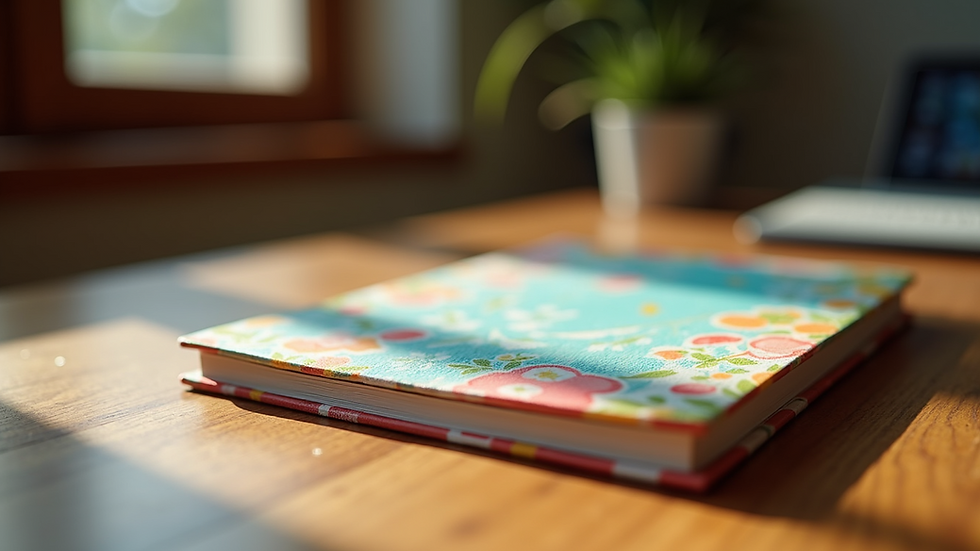The Intricacies of Journaling Versus Automatic Writing
- Aug 6, 2025
- 4 min read
Updated: Aug 10, 2025
Journaling and automatic writing are two powerful practices that people use to connect with their thoughts and feelings. While they may share similarities, each one has its distinct techniques, objectives, and advantages. This exploration will clarify the differences between journaling and automatic writing, highlighting how these methods can foster self-discovery and personal growth.
Understanding Journaling
Journaling is a time-honored practice where individuals record their thoughts, feelings, and experiences in a systematic way. This can be done in a notebook or a digital app, creating a personal space for reflection and emotional release.
Research shows that journaling can significantly improve mental health. A study published in Psychological Science found that expressive writing can enhance mood and reduce stress by up to 30%. Individuals often journal to gain clarity about their emotions, set life goals, and develop mindfulness. Mental health professionals frequently recommend it as a coping strategy for anxiety and depression due to its therapeutic benefits.

Journaling comes in many forms, including daily logs, gratitude entries, and dream journals. The approach taken often reflects personal preferences and the specific objectives behind the writing.
Setting aside a consistent time for journaling—whether it be in the morning with a fresh cup of coffee or at night as a way to unwind—can significantly enhance the experience. Creating a dedicated routine makes the practice more meaningful and fulfilling.
The Nature of Automatic Writing
Automatically writing, in contrast, embraces a free-flowing, less structured approach. The goal here is to bypass the conscious mind, allowing deeper thoughts and emotions to surface. This can lead to a liberating experience where the writer feels free to express without judgment.
Practitioners of automatic writing report that it can lead to unexpected insights. In fact, many artists and writers claim they have discovered new ideas through this technique, enhancing their creative processes. A survey conducted among writers indicated that 78% found automatic writing to spark new creative avenues they had not previously considered.

Unlike journaling's structured format, automatic writing encourages spontaneity. Writers often begin with stream-of-consciousness, allowing their ideas to pour onto the page without filters.
This technique is especially beneficial for anyone seeking inspiration or struggling with writer's block, helping to break through creative barriers.
Techniques to Enhance Journaling
While journaling can be a spontaneous practice, several techniques can enhance its effectiveness.
1. Use Prompts
Prompts are an excellent way to stimulate deeper thoughts. For example, writing prompts like "What made me smile today?" or "What is a lesson I learned recently?" can evoke insights and emotional responses that promote reflection.
2. Try Structured Formats
Incorporating specific formats can lend organization to your thoughts. Bullet journaling, for example, allows you to create to-do lists and track habits, which are shown to enhance productivity. Research indicates that organized journals can increase goal attainment by as much as 25%.
3. Reflect
Journaling is not just about writing; it’s equally about reflecting. By revisiting past entries, you can spot patterns in your thoughts and feelings, providing valuable insights into your personal growth journey.
Approaches in Automatic Writing
Similar to journaling, automatic writing can be improved with effective techniques:
1. Set Intentions
Before beginning, consider setting an intention for your writing session. This could be as simple as seeking answers to a specific question or aiming to explore a certain feeling. Clarifying your focus can provide direction to your session.
2. Practice Mindfulness
Taking a moment to practice mindfulness can help clear distractions and enhance focus. Engaging in simple breathwork or meditation for just a few minutes can create a serene mental space that welcomes creativity.
3. Embrace the Flow
Once you start writing, allow your thoughts to flow freely. Resist the urge to edit or censor; the essence of automatic writing is spontaneity. Remember, the magic happens when you let your pen dance across the page without inhibition.
Advantages of Journaling and Automatic Writing
Both practices offer unique benefits.
Advantages of Journaling
Increased Clarity: Journaling provides clarity and structure, helping you organize your thoughts.
Emotional Outlet: Writing can serve as a vital tool for processing feelings, reducing stress, and providing emotional relief.
Goal Tracking: It enables you to track your progress and set achievable goals, improving your chances of success.
Advantages of Automatic Writing
Enhanced Creativity: Automatic writing unleashes a free flow of ideas, often leading to creative breakthroughs.
Increased Self-Awareness: This practice can reveal hidden thoughts and feelings, fostering a deeper understanding of oneself.
Connection to Intuition: It helps engage with your inner voice and subconscious, strengthening intuitive insights.
Deciding Between Journaling and Automatic Writing
Choosing between journaling and automatic writing often comes down to your current needs. If you crave organization, clarity, or emotional expression, journaling might be the way to go. Conversely, if your goal is to unleash creativity or tap into your intuition, automatic writing could be your best option.
Experimenting with both practices can also be enlightening. Many people find that switching between approaches helps harmonize their analytical and creative sides, enriching their writing journey.
Embracing Self-Discovery Through Writing
Journaling and automatic writing are invaluable tools for personal exploration and growth. By recognizing the unique qualities of each method, you can harness their strengths for a more profound writing experience.
Whether you prefer to document daily experiences in a structured journal or freely express yourself through automatic writing, both approaches have the potential to uncover fresh perspectives. Dive into these practices, explore their subtleties, and embrace the enriching journey of self-discovery that awaits you.
With every page you fill, the art of journaling and automatic writing invites your unique touch and expression.
Katta Mapes, Writer, Author, Intuitive Life Coach
Katta.Mapes@gmail.com ~ Habla español



Comments